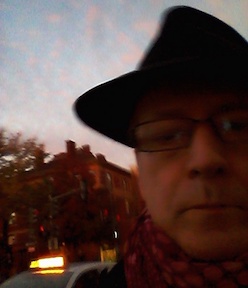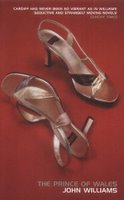
It seems as if the most genuine film noir these days is comedy, as with the current "Ice Harvest," or recent examples from Pulp Fiction to Lock, Stock, and Two Smoking Barrels. Playing noir straight verges into self-parody, because of the strictures of the genre, so going straight for the comedy instead is somehow more genuine in the present situation. A recent example of very noir, very dark comedy is Kontroll, directed by Nimrod Antal, a transplanted American who makes films in Hungary. Kontroll takes place entirely in the Budapest Metro, the city's subway system. The characters are mostly ticket inspectors (the subway runs on the honor system, like European trains and buses commonly do--no ticket gates, but don't get caught by an inspector without a ticket (the fines can be very large). In Antal's Budapest, however, the citizens give the ticket inspectors no respect at all (so much so that the actual Metro system's director has a cameo before the film's titles, explaining his logic in giving permission for the filming of this anti-establishment epic). The ragtag band of inspectors includes one picaresque hero, Bulcsu, on whom the movie hangs--he never leaves the subway (the movie's ending hinges on the possibility that he may now leave, in the company of the female romantic lead--who is at that point dressed as a fairy. This is as much a fairy tale as film noir, just as was Modern Romance, another comic-noir film of a few years ago). Kontroll includes a serial murderer who appears suspiciously like Bulcsu (and may simply be his "other," his dark self. Biographical details are vaguely outlined, leaving much mysteriousness about the characters as well as the story, but giving a sense of a dark event that propelled the hero from an above-ground world (a succesful career as, possibly, an architect) into the lower depths. There are several other threads to the narrative dealing with crimes from the petty to the violent as well as rivalries among the inspectors, and most of these plot elements leave marks on Bulcsu, who is a bloody mess by the film's end. His violently comic descent leads, though, to that fairy-tale ending at the first step of the escalator up (Modern Romance ended on the beach, against all logic). Perhaps we believe in neither an orderly universe that the noir hero can ultimately uphold nor a cynical, disorderly universe against which the hero can vainly struggle--our world is so ambiguous that it is neither the one nor the other, and noir comedy has absorbed the exhausted insight of Beckett's characters in its darkness as well as its comedy.

